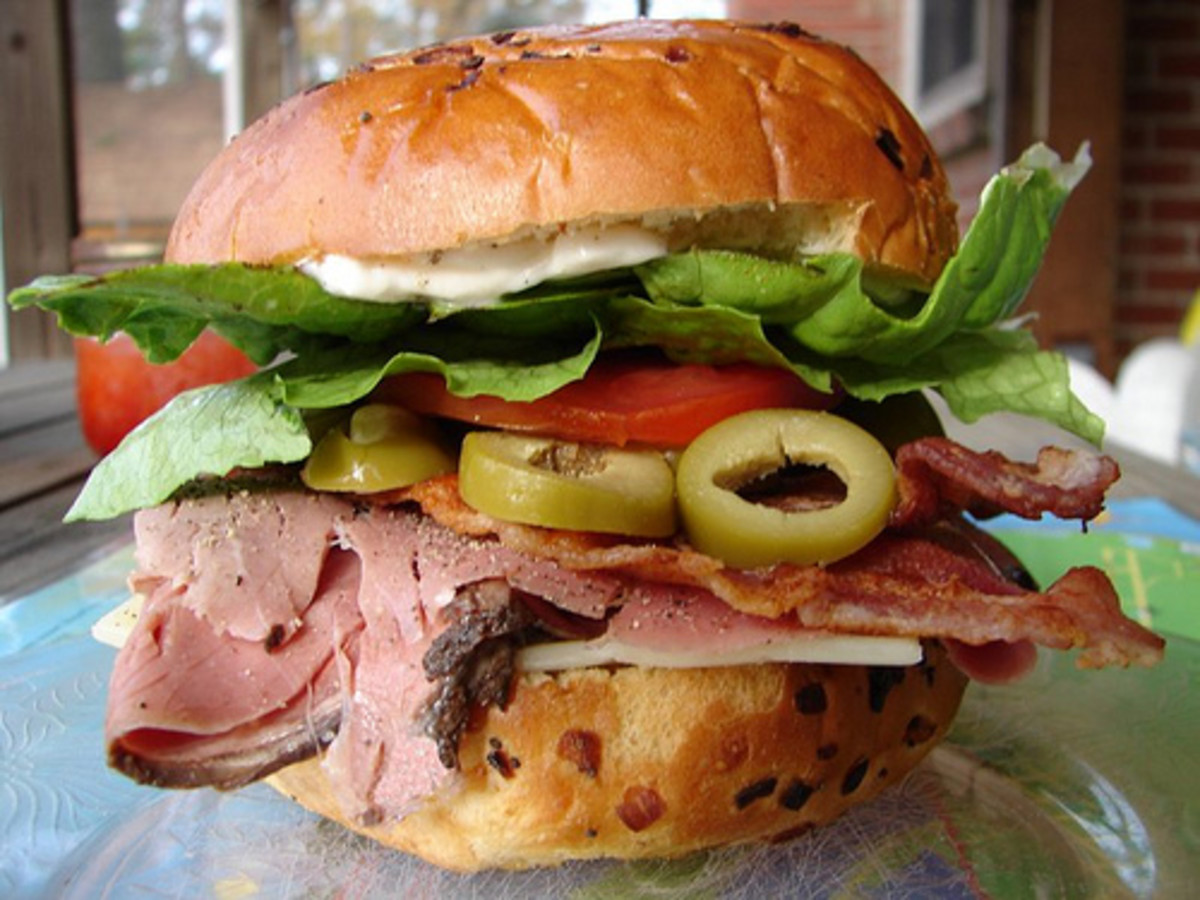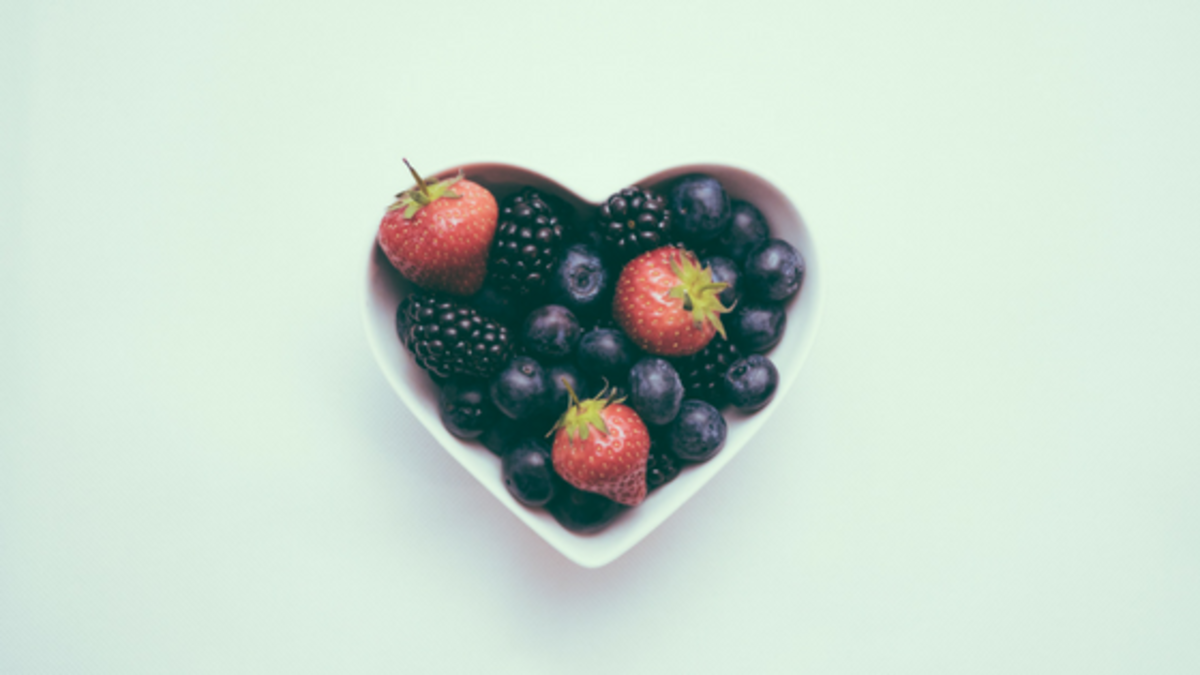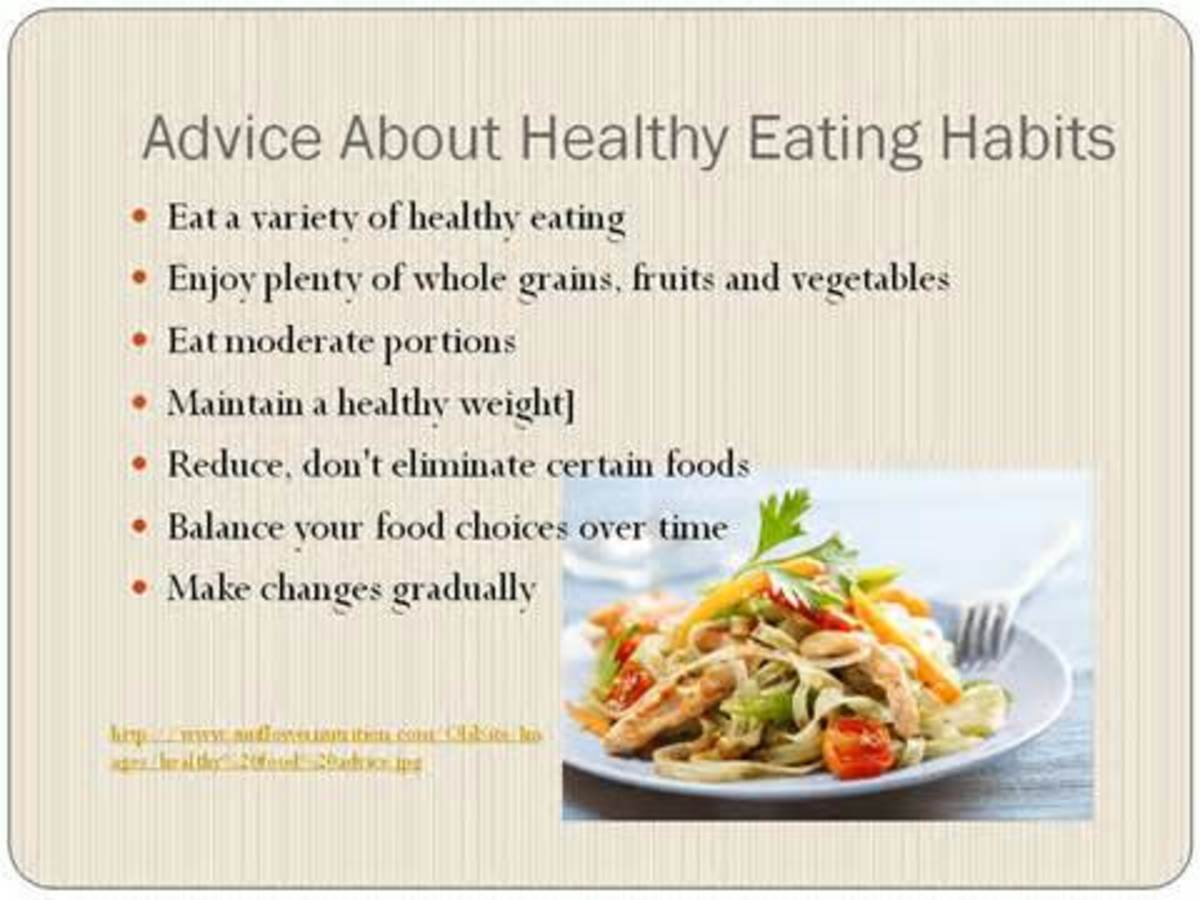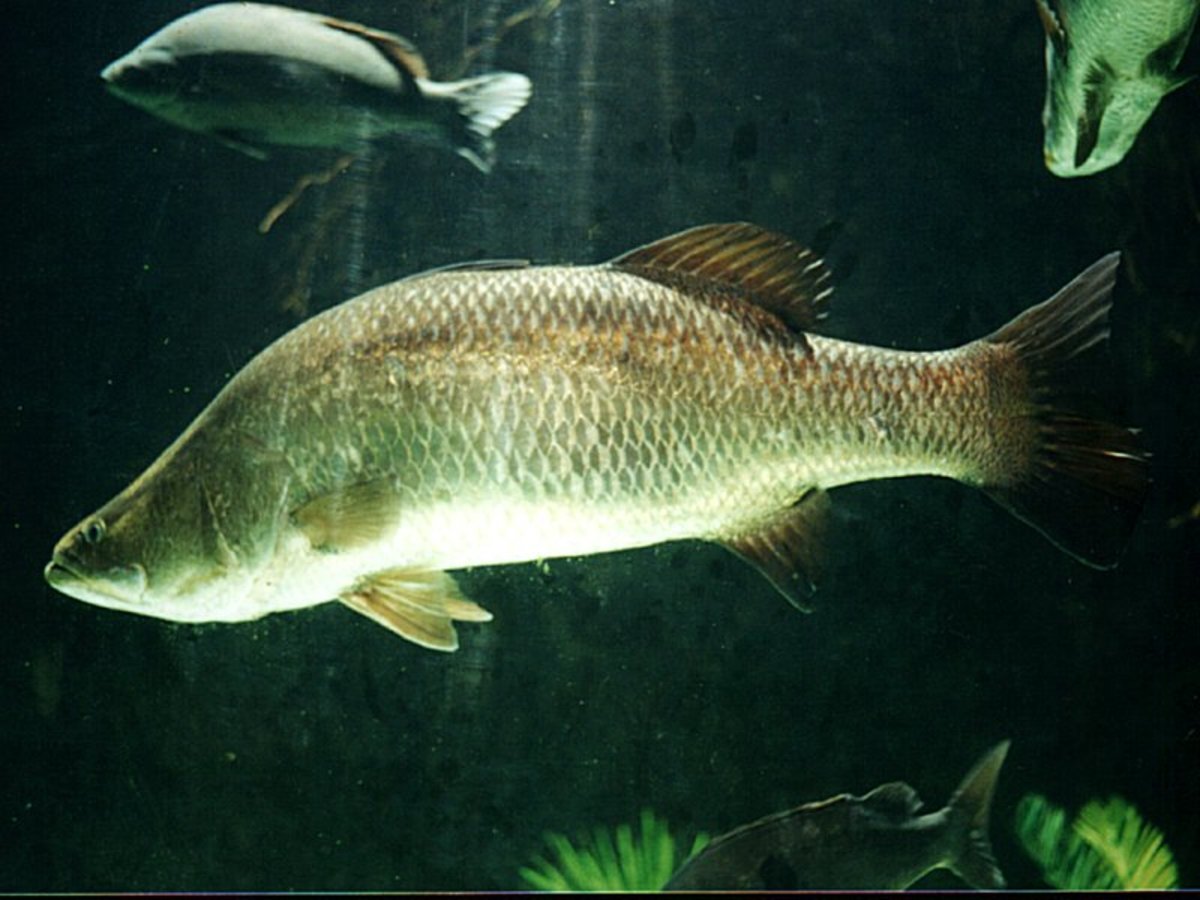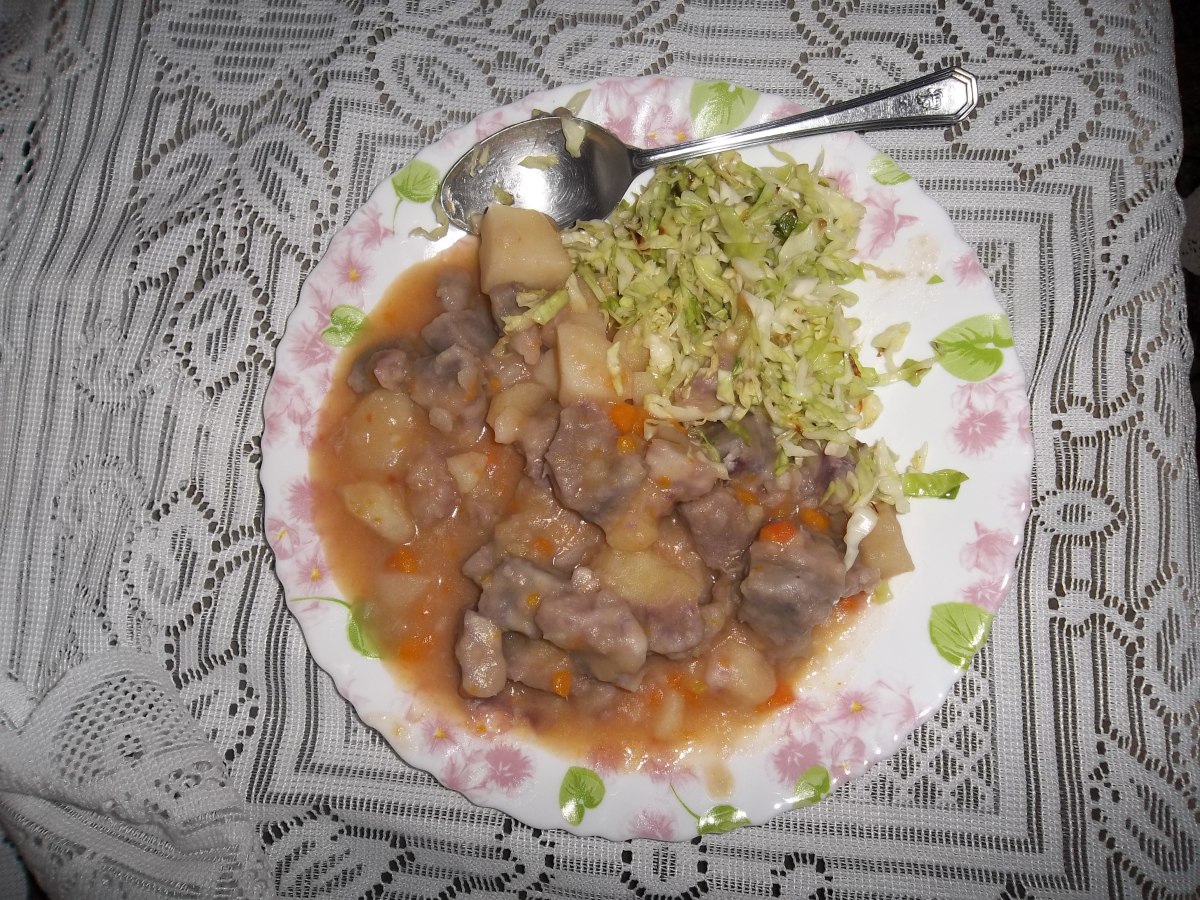100-Day Healthy Detox and Exercise Challenge
What's This All About??
This is a two-part blog. The first is a general overview of diets, detox, nutrition, and fitness designed to help YOU meet your own specific and unique goals. The second part is MY journey over the next 120 days - my meals, my workouts, my thoughts, and my experiences. Want a generic overview? Find it here. Want a specific breakdown of the next 120 days? That's here as well. So you can read the generic tips, tricks, factoids, and theories, or you can read my specific story, steal my recipes and workout ideas, and learn from my mistakes. Read what you want, take from it what you will!
My Motivation
So I talk about motivation, but what is my motivation?? Well, I'll tell you. Two years ago, I started training for a marathon. An injury to my Achilles' tendon two weeks before the race prevented me from running - and sent me into a downward spiral of sugar binges and fast-food runs. But I got back on my feet and started running again. Another injury, another food-crash to cope. Back up, back down. Another missed race. Maybe it's not meant to be, right? That's kind of what I thought. Forget it, I'll just eat cookies and ice cream cause that's better than thinking about how I keep failing. But I can't be satisfied with a quitter's mindset. Nothing is "meant to be" that you don't make happen, after all. And when I looked back on my training methods, I knew that I was at fault in a lot of ways - poor nutrition, over training, complete lack of cross-training and strength training. So, after a third stint in the junk-food haze, I'm determined to climb back out - for good.
So, here are my goals:
I would like to complete my first ultramarathon on February 22, 2014.
I would also like to, in the process, get into the best physical shape of my life by eating healthy, nourishing food every day and cross-training.
For the next 120 days I will eat only whole foods.
Cross-training will include: strength training, high intensity interval training, and runs.
For more specific measurements of physical progress, I will also post weight and BMI updates.
I'm currently 125 lbs with a BMI of 21.
Goals are 115 lbs with a BMI of 15-18 (the range at which you can start to see abs).
Your Motivation
So, you're about to embark on a 3-month journey up a steep mountain road lined with Burger Kings and pizza joints, where coworkers hold out open boxes of donuts and friends call out to join them for dinner and desert and drinks, and the smell of gooey chocolate chip cookies hangs heavy in the air... and you've got a backpack full of vegetables and whole grains you're supposed to be eating. At that moment when you've prepared a healthy vegetable-dense brown-rice stir fry and your friend appears suddenly holding a plate of pasta smothered in creamy alfredo sauce... what is going to keep you from diving face-first into that heavenly meal? What awaits you at the end of that month-long road to keep you focused? What awaits at the top of the mountain that's greater than the short-term temptations along the way? Is it a more energetic you? A skinnier you? A fitter you? Is there a race, a fitness goal, a wedding, an event? It better be something pretty good if it's going to best everything else you meet along the way. Cause the sad truth is something right in front of you absolutely does appear larger than something standing three months off in the distance.
So before you even start thinking about attempting something so great, make sure you know why and make sure it's enough. And if you're worried it might not be enough, maybe it's time to find a few more goals, maybe smaller ones, that could be accomplished in less time, pit stops along the way. Setting weekly goals and establishing rewards for meeting said goals can help divide a mountain into several smaller climbs.
The Kitchen
1. Ditch the Junk
Can't eat what's not there, right? So get rid of all the temptations. We're talking sweets, chips, white bread, soda, pop-tarts, Jiff or Skippy. Get rid of all the boxed or frozen stuff with an ingredient list a mile long. If you can't pronounce it, don't eat it. If you're eating it for the sole purpose of satisfying your taste buds, don't.
Remember:
Eat to live, don't live to eat.
Food is fuel. You eat it because your body needs the energy to keep it going, to make it stronger, to accomplish the goals in your immediate future. You wouldn't buy a Porsche and pump it full of unleaded fuel and forget to change the oil. Your body is kind of the same thing - except like a lot more important.
2. Shop
Take more time - don't just buy the same old stuff without looking at the labels. The first shopping trip will be the worst while you're establishing which brands are going to be the best. As a general rule, stay away from the middle of the grocery store - you know, where all the boxed and sugary stuff is. Gravitate towards the produce section. I know, it's a strange, foreign land full of mysterious green things. But get to know it. Try different vegetables - you never know what's going to stick.
Stop by the eggs and dairy - get yourself some eggs and milk and Greek yogurt - plain, because the rest are just as sugary as all that stuff you just threw away. (Plain yogurt isn't great. Plain Greek yogurt, however, is actually pretty tasty and makes great sauces and dips.)
Whole grains are important, too, especially if you're like me and you want to add an intense workout routine into your life. Eating nothing but leaves doesn't bode well for building muscle. Brown rice, quinoa, whole wheat flour - these things are easy to find. I have some trouble finding breads ("100% whole wheat bread"! doesn't cut it. This just means that there is some amount of whole wheat in the bread. It doesn't mean there's not 23098203498 other processed ingredients in there as well). You might have to go to a whole foods store for bread and tortillas, but I've found that a lot of normal grocery stores sell sprouted grain brands such as Ezekiel in their whole foods sections.
Meat and fish are important, too, as they're easy protein sources. I was a vegetarian for a few months, and I didn't miss meat that much, but I did find that with the amount of exercise I was doing, I was often hungry, so I started incorporating lean meats back into my diet. (That's NOT to say you can't be a perfectly successful athlete as a vegetarian or vegan - there are plenty who do it, and do it well. It's just difficult to do!) It also gives your diet a little more variety, which is often helpful when starting out on a new track.
3. Plan your meals.
Ugh, I know. Planning. Preparation. Cooking. Stuff like that. But you know what? If you know what you're going to make, it takes the guesswork out of it. It takes away that fridge-opening cabinet-searching ten minutes that ultimately leads to take-out. It eliminates the morning rush when you realize you don't have time to make lunch before work and instead grab something from the closest fast-food joint. Know what you're going to make, and you'll have all the ingredients. You'll make the time. And you'll avoid Burger King. And, big bonus, it saves you money. So take the time to figure out what you're making and when you're making it, at least for the first week or two. It'll get easier, and you'll find some easy go-to meals, the sort that are simple, quick, and use ingredients you always have on hand.
4. Start a food journal
Another pain in the butt - writing down what you're eating. It's really not that bad. And it's important for several reasons. Firstly, it makes you aware of not only what you're eating, but how much. When I started keeping a food journal, I realized that not only was I snacking almost constantly, I was also eating about 500 calories MORE than I had originally estimated! Yeah, I know, if you're eating healthy it shouldn't matter, right?? Nope - calories are calories, whether it's brown rice and vegetables or donuts. And even if you're not into counting calories and weight loss and stuff, it's still good to write down what you're eating even if it's just for documenting really good recipes. For emotional eaters, keeping a food journal is great for associating emotions with food and vice versa. It's also great for preventing emotional eating by distracting the mind from food by focusing on writing instead. And for those with gastrointestinal problems or food allergies... start documenting how you feel after certain foods. You might start noticing some patterns that could help identify and eliminate problems.
One style of food journal I've found particularly effective is a food chart. On the left side, I have my predicted foods, times, and workouts. On the right is the actual. I know, it sounds a little OCD. But when I write down what I'm eating and at what time, it actually helps keep me from mindless snacking. It also ensures that I get a good pre-workout snack and a healthy post-workout refueling.
Why Diets Don't Work
Diets don't work! We've all heard that, but it's so tempting to try, especially to justify a big piece of chocolate cake or a doughnut... Oh, it's okay if I eat this because tomorrow I'll go on a diet! I'll just drink green smoothies for the next three days and lose any weight I've gained super fast! We even read about these great diets where you eat green stuff and restrict everything else for a couple of days to drop weight fast! How cool is that!! And don't forget counting calories... as long as you stay under 800 calories a day, you'll lose 5 pounds in the next 5 days!!! Wow!!!
False!
Not only are these claims MYTHS, but they are UNHEALTHY and can even cause you to gain weight and here's WHY:
1. The science:
Muscle burns more calories than fat. What does this mean? Couple things. First, the more muscle you have, the more calories your body will burn just sitting on the couch. Hence why men (higher muscle percentage, lower body fat percentage than women) have less trouble with pounding down a big fatty dinner without second thought as to their thighs. It also means that the more energy you put into going to the gym and building muscle, the more energy your body will keep putting into it after you're done with sweating it out. But more important than the rest of this is what your body does to muscle when you starve it (AKA diet).
Let's throw around a couple of numbers here. The average female body burns about 1200 calories doing absolutely nothing. Because your body is NEVER actually doing absolutely nothing. There's always essential processes going on inside your body. Now, let's say you restrict your caloric intake to 1200. That is what your body needs to keep performing its essential functions. So as soon as you stand up, you've burned excess calories. Now add some walking around, cleaning the house, going to work... Without even realizing it, you're burning calories. Now go to the gym. Lift some weights, maybe go for a run. Suddenly, your caloric deficit is getting into the hundreds... great! Now, what if you restrict your calories even more for faster weight loss, or increase your exercise to burn more?? I mean, calorie deficit is what leads to weight loss, yes? When your body doesn't have enough calories, it's forced to burn calories it already has... so, fat, right? Yeah, maybe...
Except as your diet or exercise become more extreme, your body starts to wonder what's going on... Why is there no additional energy coming in? Is this a famine? Is food suddenly scarce?? And your body does what it's designed to do in nature. It protects itself. It goes into starvation mode. And let's face it, if you were starving and you came across a chicken and a bag of potato chips, which would you eat first? The chicken, right? You'd go for the big money, the healthy protein that's going to give you more bang for your buck. And the body knows that it's going to get more energy from eating up your muscle than your fat, so that's exactly what it does. So now you're shooting yourself in the foot twice... You're losing muscle and holding onto fat... Plus, that big piece of chocolate cake sitting on the breakroom table at work is starting to look really, really, REALLY good...
2. The social/emotional aspect (totally non-scientific, but true...):
Dieting would work a lot better if everyone was one a diet. If you walked into a restaurant and everyone was nibbling spinach leaves, you might not be so inclined to order the pasta alfredo. If you drove down the street and saw signs for Salad King or McVeggies, you probably wouldn't find yourself suddenly craving a BigMac and a large fry. And why do work parties always include big cheesy pizzas and soda??
Let's face it... being that guy standing in the corner sipping on something green and nasty while everyone else is mawing greasy stuff and the delicious scent is violently assaulting your nostrils... that's only gonna last so long before you give in and dive face-first into the pie. And while you're cramming as much bad stuff into your stomach as can possibly fit without explosion, there goes your diet...
Trust me. I've been there. Dieting will make you crazy!!! Telling yourself you CAN'T have something or CAN'T go out to eat, watching someone eat something you REALLY want... These ideas will just get stuck in your head until you're dreaming of hamburgers topped with chocolate cake and ice cream (what the gross??). And once you get one bite of Forbidden Food, you've CHEATED!!!! Oh, my god, IT'S OVER LET ME EAT MY GRIEF!!!! (And then, really there goes your diet and in a matter of an hour, you're back where you started). It's not that it's a matter of willpower... it's the same as anything you're not allowed to do... it's that big red button labeled "DON'T PUSH". We're human. We want what we aren't allowed to have.
(And, okay, if we want to add a little "sciencey" side note, there is researching being done on the addictive nature on processed sugars and fats... But that's an entry for another day...)
3. The solution.
As long as you're eating healthy most of the time, you're golden! Get your greens, say no to the unhealthy option when you've got the healthy option. Cook whenever possible because then you know exactly what and how much is going into your meal. Reduce (not eliminate) the bad stuff. Cheat every once in a while, let yourself live a little... go out to dinner and get something you wouldn't normally eat (and eat super healthy the next day, cause that will make you feel a little better about the inevitable guilt). Don't count calories, don't obsess, don't think about it all the time and make yourself crazy!
The essential question is, Why am I eating this? If the answer is usually, Because it's nutritious and good for me!, You're allowed to eat a few Cause I want too!s now and again!! That cake might not be directly good for your thighs, but if it's keeping you from starving and keeps your brain from short-circuiting, well, that is kind of a good thing, right?
Food as a Coping Method
One of the most difficult challenges I’ll have to overcome is my growing use of food as a coping method. Feeling stressed? There’s cookies in the breakroom. Sad? Ice cream in the freezer. Tired? How about IHOP for breakfast?? I didn’t even realize how dependent I am on junk food – that is, until I started to really stop to more closely examine my relationship with the sugars and fats that are piling up around my waistline. Junk food and I are like a long term couple with a highly disfunctional relationship – a roller coaster of love and hate, of happy and sad, good times and bad, victory and defeat. Junk food makes me feel good. Literally, if I’m down, it brings me up. Sad, tired, stressed – it works. Maybe it’s only a temporary fix, but sometimes that temporary high is all I need to get through a tough day, or to pull myself out from a dark funk so I can realize the mountain I’ve made is really just a molehill. Junk food literally does alter my mood – give me cookies and kitkats and I’ll be beaming. Give me salad and broccoli and you better not look at me the wrong way. I’ve even found that when in need of a little extra concentration or creativity, having an open bag of chips or crackers nearby does actually improve my focus and help me get shit done. Okay, not technically, but my brain is wired to associate sitting in front of my computer with a bunch of muchies with productivity.
But on the converse side, junk food is taking away from the things I love – from running and working out and hanging out with my friends (due to the poor body image resulting from junk food’s unavoidable weight gain). And like the loveblind maiden who’s finally realized her man is stealing away her life and personality – that the bad most definitely outweighs the good – it’s time to put an end to the dysfuction.
So… how to deal with the fact that I’ve turned junk food into my “happy pills”, into my destressor, into my productivity muse? Well, I’m going to have a rough couple of weeks, while my body is adjusting to using other things to fill the gaping void left by junk food. I’m going to be grumpy. I’m going to be tired. I’m going to be stressed, and I’m gonna want sugar. I think attitude is going to be an important factor in my success with this whole foods diet. Realizing that I am in charge of my mood, of how I react to certain situations, catching those molehills before I make them into mountains. And forcing myself to sit in front of my computer and type out a blog post without a bag of chips at my right elbow – even though it may take me twice as long as it should. I’ve gotta stick to my guns here – readjusting my attitude, finding other coping methods, and continuing to eat healthy despite all my body’s pleading to do otherwise.
So, what is a Detox?
So what is this whole "detox" thing anyway? Is this slurping down green smoothies and cayenne pepper water? Is this being hungry and cranky for the next week? Is this chomping raw leaves and green things you've never so much as looked at before?
Oh, heck no!
Been there, failed at that, never doing it again.
If it's a fad diet, I've probably tried it. I might have even seen some results. There was a point in time when i kept a strict 800-calorie diet, exercised only lightly and on occasion, and weighed about 100 pounds. And then I rebounded and ate the entire kitchen in a night.
Yeah, I'm not into the whole super-restrictive diet thing.
It's not healthy, it's too difficult and often results in rebound, and it makes you cranky as hell.
By "detox" I simply mean ridding your daily diet of the processed junk that is literally weighing you down. You can still eat tons of food - even sweet stuff like honey and maple syrup (or things sweetened by them). And it's really what you want to make of it, what your goals entail. Just looking to get rid of processed foods? You might even find that you don't miss them that much since you'll still be eating a wide range of foods (like I said, dessert is still on the menu). This type of detox is a lifestyle change, not a diet. It's a willfull elimination of stuff that's making your tastebuds happy but is doing nothing for your body but adding fluff to your hips. The mindset is "food is fuel... so why am I eating this?"
You can make this detox a little more restrictive if you are looking to lose more weight or have more serious fitness goals. I am not a big fan of low-carb diets, but since they are fairly calorically hefty, cutting back on breads and grains can help with weight loss. Also, even though they are whole foods, sweeteners such as honey and maple syrup ARE still sugar and should be watched carefully if weight loss is your goal.
As a general rule, if it's a green leafy vegetable, eat with abandon. If it's a lean meat or more starchy vegetable, eat it. If it's a whole grain or fruit, eat it in moderation. (Yes, fruits, though healthy, DO contain sugar). If it's a nut, oil, or fat, eat in moderation (fats have highest caloric content, though they are absolutely necessary for good health). I know, that's the wicked simplified version of nutrition, but eating isn't supposed to be complicated. That's the problem... nutrition is too complicated. I mean, who wants to try to figure out what all that s*%# on the ingredient list is and what it does and if it's good or bad... Screw that! If it grows out of the ground, I'll eat it. If it's got more than 5 ingredients, chances are I'm not gonna try and figure out what they all are because they're probably nothing good.
A "detox" is just nutrition simplified.
Sample Daily Chart
Planned
| Actual
| |
|---|---|---|
Breakfast 9:00 am
| Healthy pancakes
| |
Lunch 12:00 pm
| chicken salad with spinach and brown rice
| |
Work
| 12:30-5pm
| |
Snack 3:00 pm
| apple slices and Greek yogurt
| |
Exercise 6:00 pm
| HIIT workout with abs
| |
Dinner 7:00 pm
| roasted broccoli with chicken
|
A sample food chart with "planned" and "actual" columns.
I have also added in my work and exercise schedule, including times, to make sure I'm getting enough food and at the right time.
Wednesday, October 23: My Day 1
Breakfast: The Healthiest Pancakes Ever with Strawberry Applesauce! Made of all really good stuff, and actually tastes really delicious. Very quick and easy to make; I definitely recommend! See recipe and pictures below!.
Healthiest Pancakes Ever with Strawberry Applesauce Topping
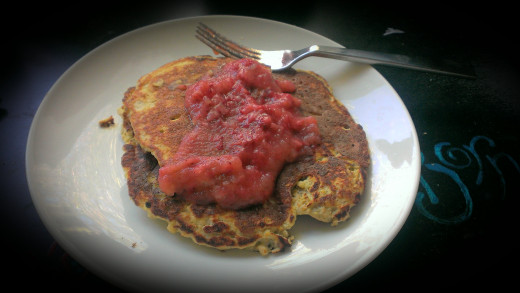
Pancake Ingredients
- 2 eggs
- 2 tbsp oatmeal
- 2 tbsp coconut flour
- 1/2 tsp baking soda
- 1/2 banana
Instructions
- Grease up your skillet (I use coconut oil) and heat over medium heat.
- Add all ingredients into a blender and blend on high until liquefied. Should be yellowish in color and have the consistency of pancake batter.
- Pour batter into pan. I find making several smaller pancakes is easier than one big pancake, as the finished pancakes are a little bit crumbly.
- While pancakes are cooking, prepare your toppings. This can be anything from fruit with Greek yogurt to applesauce. In the photo, I have a topping of crushed strawberries mixed with applesauce (make sure it's the natural kind, no sugar added). I have also blended strawberries, coconut milk, and Greek yogurt to make a tangy sauce that was really good. You could also just to maple syrup!

